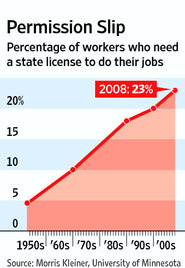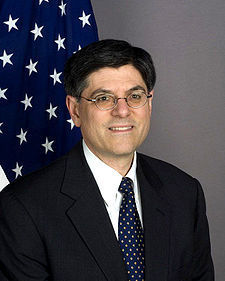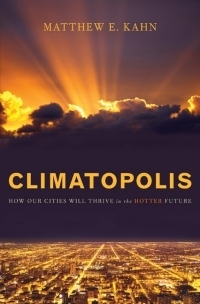Matthew Yglesias's Blog, page 2428
February 7, 2011
The Freedom To Build

A few years ago, Virginia Republicans passed a developer friendly bill mandating that each locality designate an "urban development area" in which medium-density construction would be permitted. It doesn't require that higher density structures actually be built, but it does require that they be permitted. Similarly, it doesn't require that mixed-use development be built, but it does require that it be permitted. Naturally, a conservative Virginia state legislator has teamed up with a local Tea Party group is looking to overturn this and has founded an outfit called the Campaign for Liberty in defense of stringent development restrictions.
Stephen Smith, who has a good post on this, seems surprised. But there's really nothing surprising about it. Freedom-talk is an important influence in American rhetoric, but it—and especially its self-consciously antiquarian cousin liberty-talk—has nothing to do with any analytically respectable conception of freedom. It has to do with safeguarding the perceived self-interest, lifestyle, and social status of the right sort of people. This is a country where the free market position is that for-profit colleges should have a right to unrestricted government subsidies. So why shouldn't "liberty" mean the liberty of rich suburbanites to ban medium-density construction? Here's a group of people being forced to do something they don't like and they don't like being forced to accept urbanization any more than conservatives like being forced to let gay couples get married or the conservatives of yore liked being forced to integrate the Montgomery bus system. Change feels coercive to people.


WSJ On The License Behemoth

A very nice Wall Street Journal piece by Stephanie Simon takes a look at the insane proliferation of professional licensing cartels across American state government. She also examines some of the political economy behind this, which is that the licensing fees charged by licensing agencies can turn into profit centers reducing the need for more transparent forms of taxation. I've written about this issue before, but there are two points from Simon's piece that I think are worth highlighting. One is the tendency to exempt existing practitioners from new licensing regulations:
When a trade group does succeed in getting a licensing law passed, it sometimes exempts existing workers from the testing requirements. In Michigan, for instance, it will soon be a felony to practice massage without a license. Newcomers to the field must take 500 hours of classes and pass an exam to get that license. But a grandfather clause exempts most current massage therapists, including those who may never have taken a class at an accredited school.
This is the bad faith that gives away the game. If licensing is primarily about ensuring quality in the face of market failure, then obviously you need to regulate existing practitioners. But if licensing is primarily about restricting competition to advance the interests of incumbents, then regulating existing practitioners is counterproductive.
The other point I would make here is that this impulse to create quasi-monopolies seems quite robust in conservative states. Alabama has the strictest manicurist licensing regime in the country, a stringent new locksmith licensing scheme in Oklahoma requires people to pass a 50-question exam, "Texas appropriated $151 million this fiscal year to regulate scores of occupations though independent boards and a state agency with about 400 employees," and Kentucky has "eight full-time inspectors who spend much of their time responding to anonymous tips about unlicensed manicurists." An interior designer who moved to Florida from New Jersey was shocked to learn that she's now a criminal. Obviously these are all states whose legislatures would be extremely hostile to proposals to, say, regulate pollution externalities. But when it comes to rent-seeking and barriers to entrepreneurship and economic opportunity the state legislatures of red America have no objection.


Dirty Money

(cc photo by G McFly)
Here's a little joint from FA Hayek's The Road to Serfdom:
Nor can certain harmful effects of deforestation, or of some methods of farming, or of the smoke and noise of factories, be confined to the owner of the property in question or to those who are willing to submit to the damage for an agreed compensation. In such instances we must find some substitute for the regulation by the price mechanism. But the fact that we have to resort to the substitution of direct regulation by authority where the conditions for the proper working of competition cannot be created, does not prove that we should suppress competition where it can be made to function.
This is why we have a Clean Air Act establishing an Environmental Protection Agency charged with regulating the sources of harmful pollution. One would hardly think that Hayek is a frothing at the mouth socialist, or that defenders of the free enterprise system would be running around the country denouncing this Hayekian scheme as a threat to liberty. And yet you find that nearly every Republican Party elected official, combined with nearly ever right-of-center think tank in Washington DC, and nearly every right-of-center magazine, and nearly every right-of-center talk radio host, and nearly every Fox News commentator wants to partially repeal the Clean Air Act and order the EPA to avoid regulating greenhouse gas pollution.
It's a strange turn of events.
Meanwhile, every single right-of-center friend I have likes to make fun of the left's obsession with the Koch brothers. For example, today's Los Angeles Times has an article by Tom Hamburger, Kathleen Hennessey and Neela Banerjee headlined "Koch Brothers Now at Heart of GOP Power: The billionaire brothers' influence is most visible in the makeup of the House Energy and Commerce Committee, where members have vowed to undo restrictions on greenhouse gases." It's sad, really, that Hayek lacks the kind of commitment to human liberty found among billionaire fossil fuel barons.


A Reasonable Man

OMB Director Jack Lew details some of the budget cuts the Obama administration is willing to endorse in the name of fiscal probity:
Since they were instituted, community service block grants have helped to support community action organizations in cities and towns across the country. These are grassroots groups working in poor communities, dedicated to empowering those living there and helping them with some of life's basic necessities. These are the kinds of programs that President Obama worked with when he was a community organizer, so this cut is not easy for him.
Yet for the past 30 years, these grants have been allocated using a formula that does not consider how good a job the recipients are doing. The president is proposing to cut financing for this grant program in half, saving $350 million, and to reform the remaining half into a competitive grant program, so that funds are spent to give communities the most effective help.
Another difficult cut is a reduction of $125 million, or about a quarter of current financing, to the Great Lakes Restoration Initiative, which supports environmental cleanup and protection. And a third is a reduction in the Community Development Block Grant program. These flexible grants help cities and counties across the nation finance projects in areas like housing, sewers and streets, and economic development in low- and moderate-income neighborhoods.
I was feeling cranky after I left the meeting with David Axelrod I was invited to recently. But you can see here the political strategy the White House is trying to implement as they head into a budget showdown with House Republicans. Basically the way this works is that the conservative movement is going to demand something crazy. And the White House is going to need to get a crucial block of House Republicans from marginal districts to start blinking and putting pressure on the GOP leadership to cave. The Obama administration is betting that with proposals like this it can own the "center" space, prevent Democrats with marginal seats from feeling like they need to distance themselves from him, and set up a winning position in this debate. And, heck, I think it just might work. Whatever else you might say about him, Obama has consistently managed to make himself more popular than all his leading opponents. And by shifting the conversation away from hazy notions of "cuts" to specific numerical cuts in specific programs, the White House is daring its opponents to get specific about what unpopular reductions they're interested in.
That said, Obama's re-election chances will depend a lot on the state of the economy in 2012 and very little on what people think about his FY 2011 budget proposal.


Transportation Regress

Scott Sumner discusses, among other things, the lack of meaningful progress in transportation technology over the past couple of generations:
If at age 10 I could have been magically transported from the 1960s to 2011, I would have been very impressed by the internet. But I might have also asked "Dude, where's my flying car?" I might have been surprised that people still flew in Boeing 7X7s that go about 575 miles an hour. Where are those super-sonic jets? I would have noticed changes, but nothing (except maybe the internet) would have blown me away.
In contrast a Roman or Minoan citizen would have been awestruck by the 1960s. An average working man can blast down the highway at 80 mph? You can watch TV shows? Even electric lights (which modern people wrongly take for granted) would have astounded the ancients.
Something that I think is worth paying attention to is the contrast between the pace of technical improvements in automobiles, which has been quite robust, and the basic stagnation of the driving experience. Cars are a lot better, but in general you can't really drive faster. That's because especially in our largest and most productive cities, the traffic jams are much worse than they were fifty years ago. This is a problem we can solve. It's a problem we can solve with technology. But it's not really a problem that car engineers can solve. We need congestion pricing. Similarly, there's no reason for people to be regularly spending time circling the block looking for parking spaces. Prices should be responsive to demand. With the money we raise, we could run busses more frequent and equip them with GPS so bus stops (and websites, smartphone aps, etc.) could tell you when the next one's going to show up.
Air travel is a bit of a different situation, but in many ways it's the same. Today's planes are, in fact, technologically superior to the planes of yore. But the travel experience has been made much worse by massive over-investment in airplane security. Inefficient pricing of runaway space leads to lots of problems. It's possible today to build much better passenger trains than the ones we had fifty years ago, but it's not politically possible to get straight rights of way for the tracks.
All in all, no matter how rich we get a day only has 24 hours. Things that cause us to waste time are very costly. And allocating space in systematically inefficient ways leads to a lot of wasting of time.


AOL/Huffington Post

As a new media professional, I'm obviously excited any time a content property gets bought at a generous valuation and AOL paying $315 million for the Huffington Post's operation definitely seems to fit the bill.
Something I'll say on behalf of this idea is that it turns out that a few sites I read pretty frequently are already owned by AOL, under their AOL Tech banner, but I hadn't actually noticed that AOL owns them. Adding that kind of content to Huffington Post's more effective branding and marketing could easily add value. What's more, after I tweeted a joke about just now realizing that Mapquest still exists, I see that it has some pretty impressive functionality and a number of tech-savvy acquaintances are telling me it's worthy of support due to its use of the Open Street Map. So here, too, seems to be an asset with some hidden valuable that Arianna Huffington and her team could plausibly unlock.
At any rate, I continue to be an optimist about the Internet and the news.


Climatopolis

Matthew Kahn's Climatopolis: How Our Cities Will Thrive in the Hotter Future is a must-read for anyone interested in cities and environmental economics. But it's also a mighty strange book. The author seems to have committed himself to a marketing strategy as the guy who's not a climate change denialist but who's "optimistic" about its consequences. But there's basically nothing in the book to justify optimism relative to any kind of reasonable baseline:
During one 1980 presidential campaign debate, Ronald Reagan famously asked the American people, "Are you better off than you were four years ago?" The electorate answered with a resounding "no," and voted Reagan into office over the hapless incumbent, Jimmy Carter. When we ask the same question in 2050, very few of us will want to go back to the bad old days of the twentieth century. Over the next hundred years, the world's population and per capita income will both continue to grow. Fueled by urbanization, much of this growth will take place in developing countries. This spread of the "American Dream" to more and more people all over the world offers great opportunities that many of us in rich countries take for granted.
Imagine someone telling you in February of 1925 that he's optimistic about the next 30 years. In 1955, he argues, per capita living standards will be higher than they are in 1925. In reality, the 1925-1955 period saw a Great Depression, Stalin's Great Terror, the Holocaust & World War II, the partition of India, etc. It sucked. And yet per capita living standards were higher in 1955 than they were in 1925. It's a very interesting and important fact about the past 200 years of world history that for all N, global GDP per capita is higher in N+30 than in N. But this doesn't really suffice as an analysis of any particular problem. Avoiding the Depression, or Nazism, or Maoism would have been huge wins for humanity.
Earlier in the book, Kahn observes:
A Berkeley research team who compared long-term impacts of the war in 584 Vietnamese districts that had faced very different bombing intensities found that despite this awesome firepower, there was no robust adverse impact of U.S. bombing on poverty rates, consumption levels, electricity infrastructure, literacy, or population density through 2002; that is, the U.S. bombs had little to no long-term impact on the growth of Vietnamese cities.
That seems to me to be the right way to think about this. Un-mitigated climate change is going to be like Operation Rolling Thunder. A lot of people are going to die. A lot of people are going to be maimed. A lot of existing physical infrastructure will be destroyed. The extent to which pulverizing Vietnam with high explosives didn't alter the country's long-term trajectory is fascinating, but obviously constitutes cold comfort to mothers with dead children or people with no legs. As Kahn notes, the negative impact of climate change will fall disproportionately on the global poor and the elderly. If the entire population of Bangladesh dropped dead tomorrow, per capita GDP would go up. A 20 percent increase in the death rate of Americans over the age of 65 would cause our per capita growth rate to accelerate. It's important to understand these facts, but it's strange to think of them as optimistic scenarios and I wish Kahn had been a lot more careful in the wording of his qualitative claims since the book presents a lot of interesting research that's worth understanding.


February 6, 2011
No Switzerland For Bush
Apparently fear of torture prosecutions is keeping George W Bush out of Switzerland. Couldn't have happened to a worse president.
At any rate, I want Bush and other high-ranking current, former, and future American officials to know that Switzerland is a lovely country and my personal advice is that you should try and avoid doing anything that you think is likely to constrain your future travel for fear of war crimes prosecutions.


A Modest Proposal On Entitlements
There's a lot of support in Washington, DC for the idea of raising the retirement age. And the case for doing so is pretty clear. Thanks to declining birth rates, the elderly share of the population is projected to rise and this necessarily creates some policy dilemmas. On top of the birth rate issue, we also have the problem of expanded life expectancy. People living longer sounds good, but the trouble is that when the ratio of retired years to working years increases, the ratio of consumers to producers also increases. That means declining living standards, either in the form of reduced annual benefits or higher taxes. A higher retirement age would halt the ratio shift.
Of course a little-explored alternative possibility would be to simply set a "maximum age" so as to prevent any such increase. We could reverse current plans to raise the retirement age to 67, and just cap human life at 80 years. Everyone would get a maximum of 15 years of retirement. This has all the economic advantages of raising the retirement age plus several additional advantages:
— Since life expectancy correlates with income, my proposal does a much better job of safeguarding the interests of the most vulnerable citizens.
— Maximum age would substantially "bend the curve" of economy-wide health care costs, which a higher retirement age leaves almost entirely unchecked.
— Maximum age would allow us to reap major efficiency advantages in terms of retirement planning and portfolio allocation strategy.
— Since health tends to decline with age, capping the number of retired years though a maximum age policy gives you more QUALYs of retirement than does achieving an equivalent retirement length via a higher retirement age.
— By tackling the production:consumption ratio directly on the consumption side, maximum age is much greener than efforts to increase production.
Next time one of the haters wants to deliberately miss the point, I hope he'll read this post.


The Invisible Primary
The interesting case of Rupert Murdoch employee Bill Kristol pointing out that Rupert Murdoch employee Glenn Beck is being nutty about Egypt puts me in mind of the coming 2012 GOP primaries. That's because, basically, this kind of disagreement from inside the News Corporation borg is relatively rare and, in principle, one could put a stop to it.
Students of American politics have the idea of an "invisible primary" that occurs before official nomination contests start. This is a war to garner the support of various party elites, party-aligned interest groups, contribution bundlers, etc. This is a fascinating process because it's traditionally so diffuse. DC movers and shakers matter a lot, but so do New Hampshire state senators and highly energetic local Iowa activists.
But the conservative media is both very influential and also at this point pretty highly concentrated. Consider, for example, the case of John Thune. Thune voted for the Troubled Asset Relief Program, which won't be a very popular item on his record. But I'm sure he has some hand-wavy explanation for why this doesn't impugne his conservative credentials. Will people buy this? I think the question comes down largely to whether or not Fox News as an institution buys it. If the Weekly Standard says Thune is a true-blue conservative and Fox News agrees and Sean Hannity and Glenn Beck also espouse this view on their radio shows (two of the top five in the country) then that's almost a consensus right there. If Rush Limbaugh insists that these guys are all wrong, and someone else is the real conservative, then that guys got a fighting chance. But Rush + News Corp is a juggernaut that would be pretty hard to stop if the interest is there in really picking someone. Of course, the interest might not be there—I could see taking the view that a stance of studied neutrality is the way to go. But the larger point is that to a great extent the dynamic duo of Roger Ailes and Limbaugh basically just get to decide among the two of them which positions count as authentically conservative.


Matthew Yglesias's Blog
- Matthew Yglesias's profile
- 72 followers




